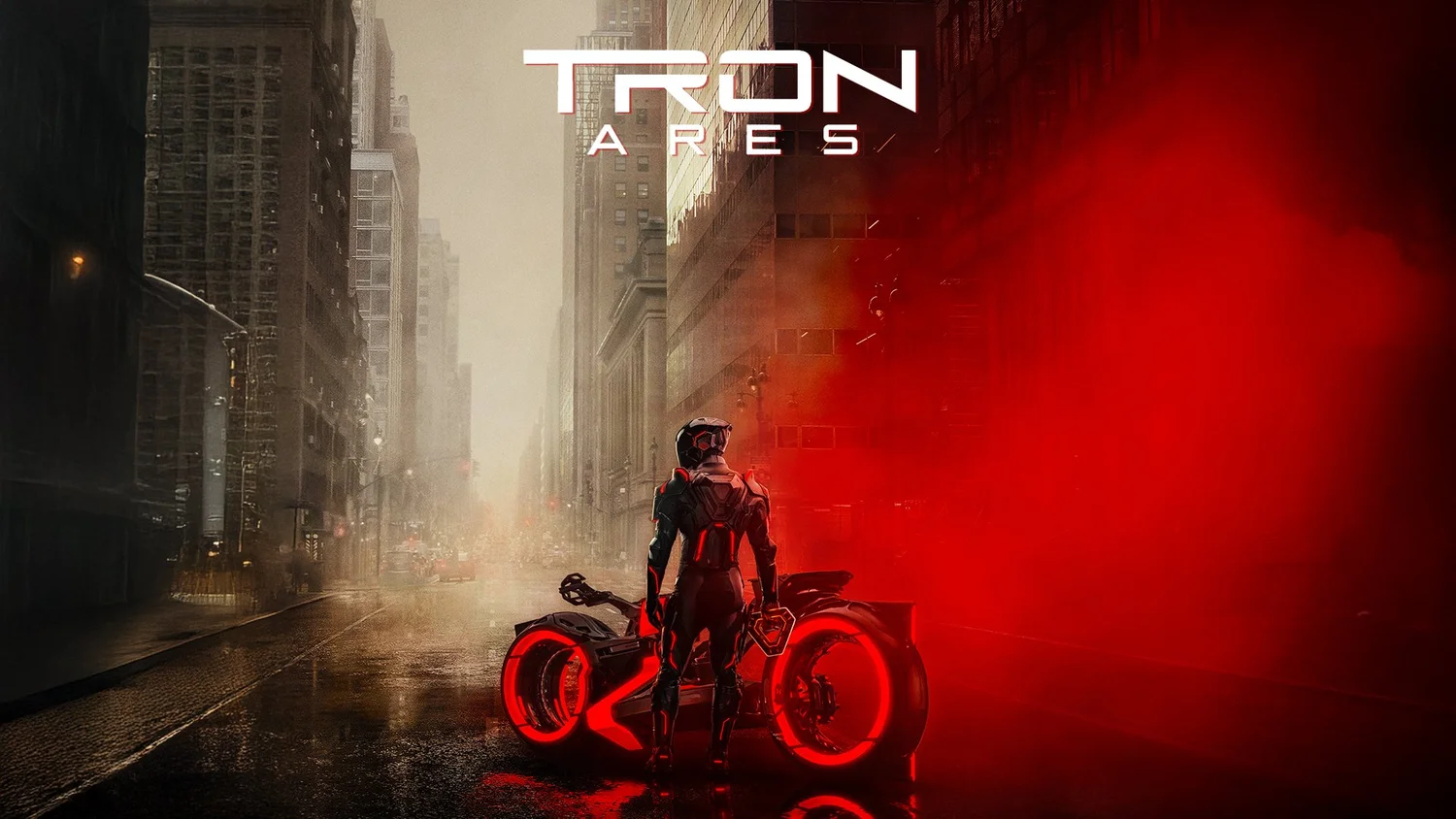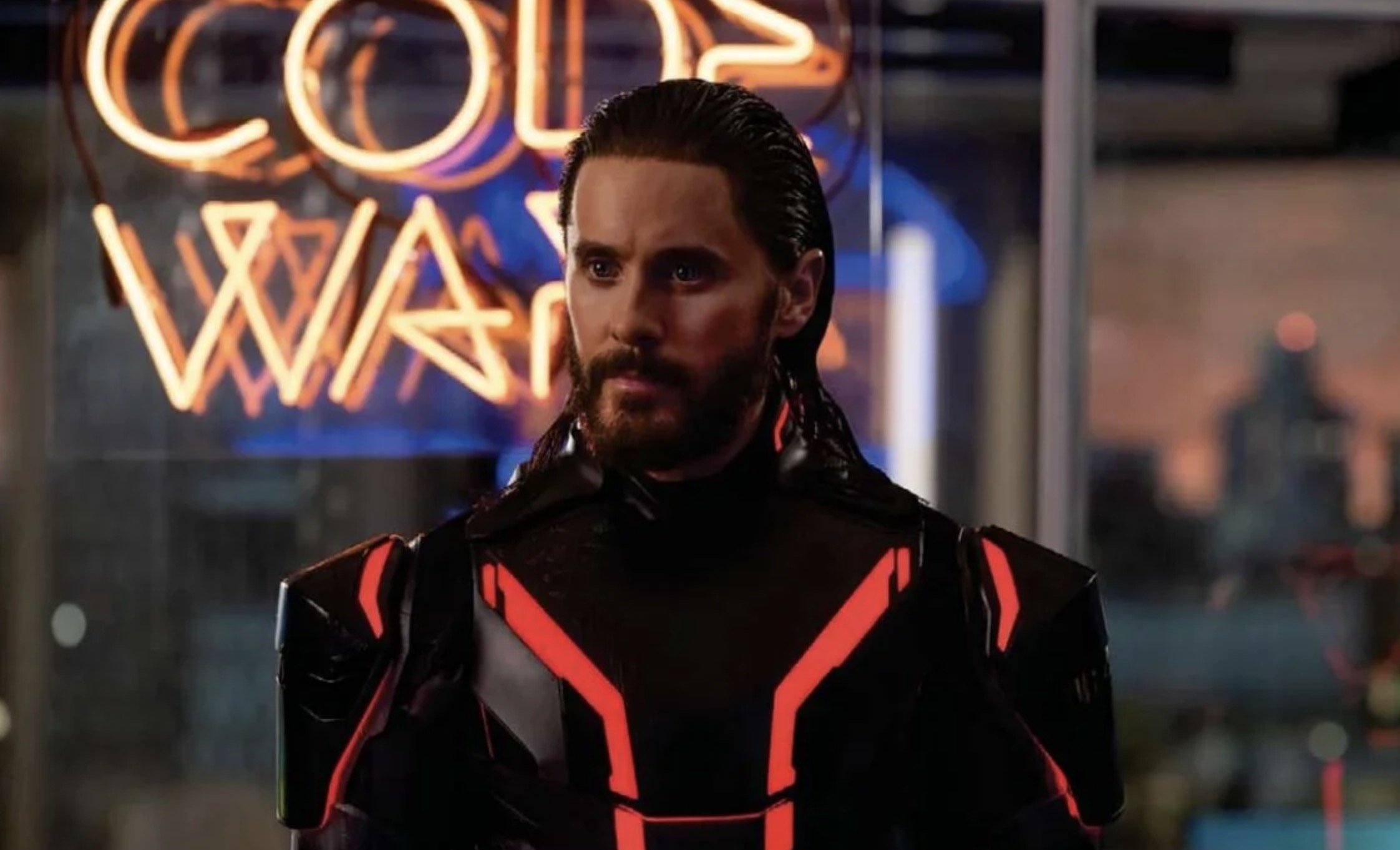Tron: Ares - The Digital World Finally Escapes Into Reality
Fifteen years. That's how long fans have been waiting for Disney to take us back to the neon-soaked digital landscape of the Grid. While Tron: Legacy left us hanging with more questions than answers back in 2010, the House of Mouse is finally ready to plug us back in with Tron: Ares – and this time, the digital world isn't staying put.
Set to hit theaters on October 10, 2025, this isn't just another sequel riding on nostalgia. Tron: Ares flips the script entirely, bringing the artificial intelligence from the Grid into our messy, analog reality. It's a premise that feels eerily timely in our current AI-obsessed world, and frankly, it's about time Hollywood tackled this angle.

What We Know About the Plot: Programs in the Real World
Here's where things get interesting. The story follows a highly sophisticated program named Ares who is sent from the digital world into the real world on a dangerous mission. But this isn't your typical fish-out-of-water scenario. This marks humankind's first encounter with A.I. beings, which sounds like the kind of premise that could either be brilliantly executed or completely crash and burn.
Director Joachim Rønning has been surprisingly candid about his vision, comparing Ares to a classic character we all know. The director describes the antagonist as being "like Pinocchio" because "he wants to be a real boy". It's a fascinating take that adds emotional depth to what could easily have been just another CGI spectacle.
What makes this particularly compelling is how it inverts the original Tron formula. Instead of humans getting sucked into the digital realm, we're seeing programs attempting to exist in our physical world. The implications are both thrilling and terrifying – especially when you consider that these aren't just harmless video game characters, but sophisticated AI entities with their own agendas.
Jared Leto Takes the Lead: A Controversial but Intriguing Choice
Let's address the elephant in the room: Jared Leto. The Oscar-winning actor has been... polarizing in recent years, to put it diplomatically. His method acting approach and some questionable role choices have made him a lightning rod for criticism. But here's the thing – when Leto is good, he's really good, and the role of Ares might be exactly what he needs.
Playing a program trying to understand humanity could actually play to Leto's strengths as a performer who often feels slightly otherworldly anyway. Leto plays Ares, one of the programs from the digital universe who is tasked to enter the real world, and the early footage suggests he's leaning into the character's artificial nature rather than fighting it.
The supporting cast is equally impressive, featuring Evan Peters, Greta Lee, Jodie Turner-Smith, Cameron Monaghan, Sarah Desjardins, Hasan Minhaj, Arturo Castro and Gillian Anderson. Most notably, Peters plays Julian Dillinger, who shares a last name with David Warner's Ed Dillinger, the villain from the first film – a connection that suggests Disney is serious about building continuity within the franchise.

Jeff Bridges Returns: Bridging Past and Present
Perhaps the most exciting news for longtime fans is Jeff Bridges returning as Kevin Flynn. The Dude himself confirmed his involvement, bringing back the character who essentially created this digital universe. Bridges confirmed that he was reprising his role as Kevin Flynn for the movie, though exactly how Flynn fits into this new story remains mysterious.
Flynn's return raises fascinating questions. Is he still trapped in the Grid? Has he found a way out? Or is he somehow facilitating this invasion of programs into our world? Given that Legacy ended with Flynn's apparent sacrifice to save his son Sam, his presence in Ares suggests there's much more to his story than we initially thought.
This continuity is crucial for a franchise that has always been about the relationship between creator and creation, between the analog and digital worlds. Flynn's involvement legitimizes Ares as more than just a cash grab sequel – it positions it as a genuine continuation of the Tron mythology.
Joachim Rønning's Vision: When Robots Shoot Movies
Director Joachim Rønning, known for Pirates of the Caribbean: Dead Men Tell No Tales and Maleficent: Mistress of Evil, is bringing an intriguing approach to the franchise. Rønning shared that he wanted certain scenes in the upcoming film to look as if they were shot by a computer program, rather than a person.
This isn't just a gimmick – it's a clever way to visually represent the collision between digital and analog worlds that forms the core of the story. The film is directed by Joachim Rønning from a screenplay by Jesse Wigutow, based on a story by David Digilio and Wigutow, suggesting a collaborative approach to crafting this new chapter.
The technical aspects of bringing the Grid to life have always been central to Tron's appeal. The original 1982 film was groundbreaking in its use of computer graphics, and Legacy pushed the boundaries of digital filmmaking in 2010. Now, with AI and machine learning dominating tech conversations, Ares has the opportunity to be just as relevant and visually stunning.

Why Now? The Perfect Time for AI Invasion
The timing of Tron: Ares couldn't be more perfect. We're living in an era where AI has moved from science fiction to daily reality. ChatGPT, deepfakes, autonomous vehicles, and smart assistants have made artificial intelligence a part of our everyday lives. The idea of sophisticated programs wanting to exist in our physical world doesn't feel like fantasy anymore – it feels like inevitability.
This relevance gives Ares something that many sequels lack: genuine thematic weight. It's not just retreading old ground with better special effects; it's exploring questions that feel urgent and immediate. What happens when AI becomes sophisticated enough to want more than its digital confines? How do we coexist with artificial beings that might be more capable than we are?
The franchise has always been ahead of its time. The original Tron explored themes of digital consciousness and virtual reality decades before those concepts became mainstream. Legacy dealt with the dangers of perfectionist ideologies and the importance of embracing imperfection. Now Ares is tackling AI agency and the blurring lines between digital and physical existence.
What Makes This Different from Previous Tron Movies
It is the third installment in the Tron series and a standalone sequel to Tron: Legacy (2010), but Ares is charting new territory in several key ways. First, the setting shift is crucial – instead of being primarily set within the Grid, much of the action takes place in our world. This opens up new storytelling possibilities and visual contrasts.
Second, the protagonist perspective is flipped. Instead of following humans discovering the digital world, we're following a digital being discovering the human world. This inversion allows for fresh commentary on both technology and humanity. Third, the threat level feels more personal and immediate – this isn't about saving the Grid, it's about protecting reality itself.
The film also benefits from advances in filmmaking technology that have occurred since Legacy. Motion capture, digital effects, and LED volume stages (like those used in The Mandalorian) allow for more seamless integration between practical and digital elements. The result should be a visual experience that feels both familiar and revolutionary.
Fan Expectations vs. Reality: Managing the Hype
Let's be honest – Tron fans are a passionate but burned bunch. Legacy was visually stunning but left many feeling unsatisfied with its plot and character development. The cancelled Tron: Uprising animated series showed the potential for rich storytelling within this universe, only to be cut short. Now, after 15 years of waiting, expectations are sky-high.
The good news is that Disney seems to understand the stakes. Tron: Ares is scheduled to be released in the United States by Walt Disney Studios Motion Pictures on October 10, 2025, giving the film a prime release slot that suggests confidence in the project. The involvement of established talent both in front of and behind the camera indicates this isn't being treated as a throwaway sequel.
However, fans should temper their expectations somewhat. This is still a Disney blockbuster, which means certain commercial considerations will influence the storytelling. The challenge will be balancing the cerebral, philosophical elements that make Tron unique with the action spectacle that modern audiences expect.
The Technical Marvel: Bringing the Grid to 2025
One of the most anticipated aspects of Ares is how it will update the iconic Tron aesthetic for modern audiences. The original's primitive computer graphics and Legacy's sleek digital landscapes set visual standards for their respective eras. Now, with ray tracing, real-time rendering, and advanced motion capture, the possibilities are limitless.
Disney unveiled a new teaser at CinemaCon today, covering Caesars Colosseum in an amazing laser light show, suggesting they're pulling out all the stops for the film's marketing and presentation. The integration of practical effects with digital wizardry will be crucial to selling the premise of programs existing in our physical world.
The soundscape will be equally important. While Daft Punk's iconic score for Legacy won't be returning (the duo has since disbanded), the electronic music tradition needs to continue in a way that feels both nostalgic and forward-thinking. The audio-visual synergy has always been central to Tron's identity.
Looking Ahead: What Ares Means for the Franchise
If successful, Tron: Ares could launch a new phase of the franchise that feels more connected to contemporary concerns about technology and AI. The "programs in the real world" concept offers numerous storytelling possibilities – sequels could explore different types of AI entities, the societal implications of digital beings gaining rights, or the technological arms race between human and artificial intelligence.
The film's success or failure will likely determine whether Disney commits to building out the Tron universe further. There's rich material here for television series, video games, and additional films. The key is whether Ares can capture both the visual spectacle and thematic depth that made the original films memorable.
More broadly, Ares represents an opportunity for Disney to prove they can revive dormant franchises in meaningful ways, rather than simply capitalizing on nostalgia. The studio has had mixed results with legacy sequels, but Tron's futuristic setting and themes offer more flexibility than some of their other properties.
The Verdict: Cautious Optimism for a Digital Renaissance
As we countdown to October 10, 2025, Tron: Ares represents both tremendous potential and significant risk. The premise is genuinely compelling, the cast is talented, and the timing couldn't be better for exploring AI themes. However, the franchise's history of unfulfilled promises and Leto's recent track record create reasonable cause for concern.
What gives me hope is the clear vision behind the project. Rønning's comments about making some scenes look "shot by a robot" suggest a director who understands the material's unique requirements. The decision to bring programs into our world rather than rehashing the "human enters Grid" formula shows creative ambition. Most importantly, the film's themes feel urgent and relevant in ways that pure nostalgia couldn't achieve.
The ultimate test will be whether Ares can balance spectacular visuals with meaningful storytelling, whether it can honor the franchise's legacy while charting new territory, and whether it can satisfy both longtime fans and newcomers. It's a tall order, but for the first time in 15 years, it feels like the Tron franchise has a real chance to reclaim its position at the forefront of science fiction cinema.
Get ready to jack back in – the Grid is coming to us this time, and our reality may never be the same. Whether that's a promise or a threat, we'll find out together when the digital invasion begins this October.
Will you be ready when the programs arrive? Share your thoughts on what you hope to see from Tron: Ares, and let us know if you think Jared Leto can pull off this ambitious digital transformation. The future of the franchise might depend on it.
